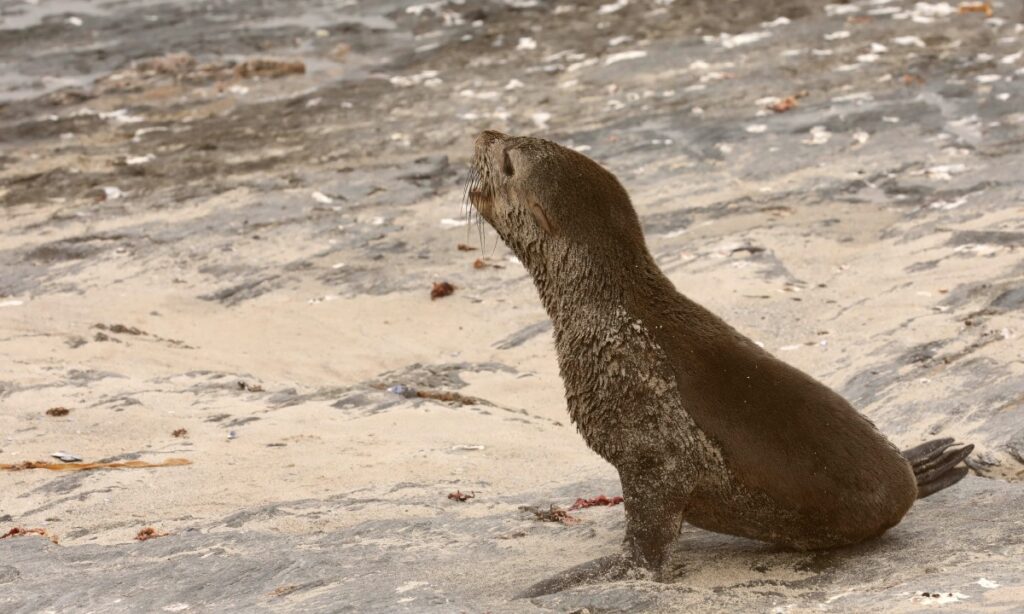First recorded rabies outbreak in Cape fur seals may have started with bite from Namibian jackal, experts say

A rabies outbreak in Cape fur seals — first identified in June 2024 — has been traced back to black-backed jackals along the Namibian coast, according to a recent report by South Africa’s Department of Agriculture, Land Reform and Rural Development.
While the exact “patient zero” remains unknown, the Western Cape Department of Agriculture believes a rabid jackal likely bit a seal in Namibia, initiating the spread. From there, the virus is thought to have moved between seals via seal-to-seal transmission.
“Jackals are known to prey on seal pups along the Namibian coast,” said Mary James, Head of Communication for the Western Cape Department of Agriculture. “There are photographs and videos showing jackals biting seals and getting into fights with adult seals trying to defend their young.”
Virus Declared Endemic in Cape Seal Population
The outbreak, which has so far affected the Northern and Western Cape coastlines, has now been declared endemic in the Cape fur seal population. This means the virus is circulating consistently and at a relatively stable rate among the animals.
The June 2024 outbreak marked the first time rabies had ever been recorded in South African Cape fur seals.
The chain of events leading to its discovery began on 20 May 2024, when a three-year-old dog in Cape Town had to be euthanised. The dog displayed aggressive behaviour two weeks after being bitten by a Cape fur seal during a beach walk.
By the end of October 2024, 29 rabies cases had been confirmed in Cape fur seals along the Western Cape, with seven reported along the Garden Route. The Northern Cape recorded 15 cases.
Could It Spread to Eastern Cape or KwaZulu-Natal?
So far, the virus has not been detected in Eastern Cape colonies. James noted that the small seal colony in Algoa Bay’s Black Rocks appears unaffected, though the reasons remain unclear — possibly due to the colony’s isolation or small size.
“Seals are capable of travelling long distances,” she warned. “This means they can potentially carry the virus with them, increasing the risk of transmission to other coastal areas.”
Eradicating rabies in wild populations is notoriously difficult, and oral vaccine distribution — commonly used for terrestrial wildlife — isn’t a viable option for seals, as they don’t typically scavenge.
“For now, we have to manage the effects of rabies as best we can,” James said. “And be prepared for cases to continue appearing in seals for the foreseeable future.”
Jackals Infected by Dogs Decades Ago
The jackal population’s rabies strain can be traced back several decades. According to James, the canine biotype of the virus was introduced to South Africa around the 1940s, originally spread by infected domestic dogs moving south through Africa.
“Black-backed jackals were infected by domestic dogs during that period. Since then, the virus has established itself in jackals and continues to spread within their population,” she explained.
James also addressed a common misconception: animals cannot carry or transmit rabies without showing symptoms. “Any mammal infected with rabies — whether jackal, seal, or dog — will become sick and eventually die.”





